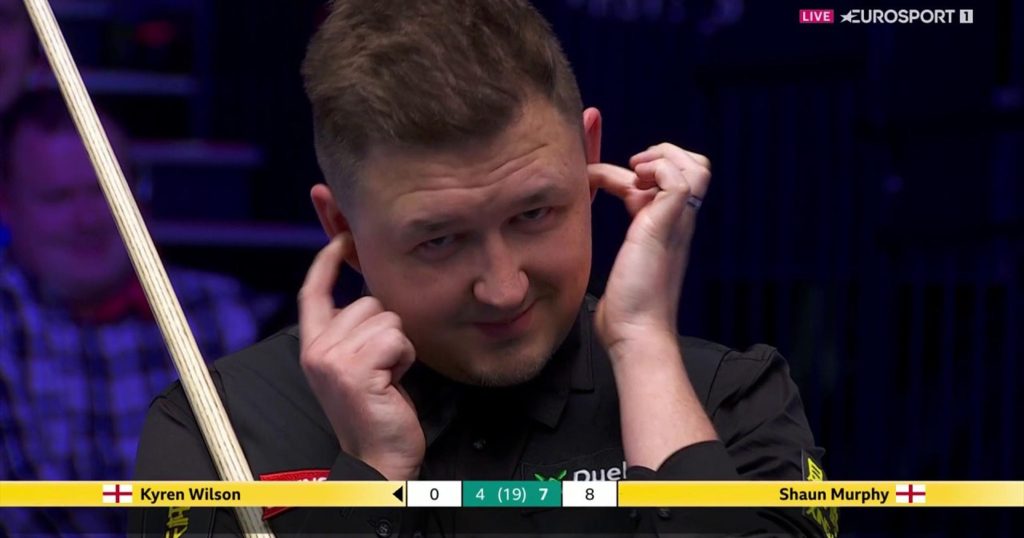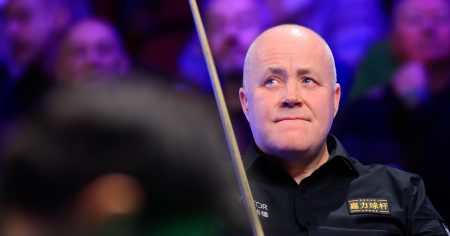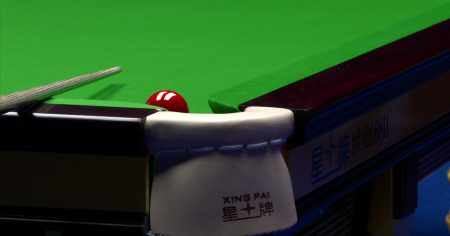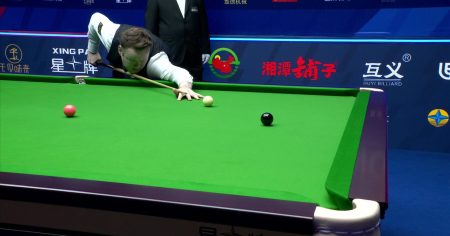Kyren Wilson’s theatrical gesture of plugging his ears during the Masters final against Judd Trump became a symbolic moment of frustration and defiance. Referee Olivier Marteel’s recitation of the three-miss rule warning, a standard procedure in snooker, triggered Wilson’s dramatic response. This rule, designed to prevent deliberate stalling and maintain the flow of the game, stipulates that if a player misses the nominated ball three consecutive times with a clear view, the frame is forfeited to their opponent. Wilson’s action, while visually striking, reflected the immense pressure and delicate balance of professional snooker, where even the slightest lapse in concentration can have devastating consequences.
The incident highlights the unique psychological pressures of snooker. Unlike many other sports where physical exertion dominates, snooker demands extreme mental focus, precise calculations, and unwavering control under immense pressure. The three-miss rule, while seemingly straightforward, introduces a psychological layer that can unravel a player’s composure. Facing a potential frame loss due to repeated misses throws a player into a mental battle, testing their ability to manage pressure and maintain focus amidst the rising tension. Wilson’s reaction, albeit unconventional, demonstrated the internal turmoil a player experiences when confronted with this rule’s implications.
The three-miss rule itself is a crucial element of snooker’s strategic framework. It prevents deliberate time-wasting, ensures a reasonable pace of play, and protects the integrity of the game. Without this rule, a player could theoretically exploit the rules by intentionally missing shots to disrupt their opponent’s rhythm or to run down the clock in a strategically advantageous situation. The rule, therefore, acts as a deterrent against unsportsmanlike conduct and ensures that players maintain a genuine attempt to pot the nominated ball.
Wilson’s ear-plugging, however, raises questions about sportsmanship and the appropriate ways to express frustration within a formal sporting context. While his action didn’t directly violate any rules, it skirted the boundaries of acceptable behavior by appearing to disrespect the referee and the officiating process. The referee’s role is to enforce the rules impartially, and Wilson’s gesture, though born of frustration, could be interpreted as a challenge to the referee’s authority. This incident sparked debate about the acceptable expressions of frustration in snooker and the importance of maintaining respect for the game’s officiating procedures.
Furthermore, this episode underscores the complex interplay between rules, strategy, and psychology in snooker. The three-miss rule, while essential for fair play, can become a psychological weapon. Opponents might intentionally maneuver a player into a difficult position, hoping to induce a series of misses and capitalize on the rule. This adds a layer of strategic complexity to the game, where players not only need to execute their shots but also anticipate and manipulate their opponent’s mental state.
In conclusion, Kyren Wilson’s ear-plugging gesture, while controversial, offered a glimpse into the intense psychological pressures of professional snooker. The three-miss rule, a vital component of the game’s structure, can become a double-edged sword, adding strategic depth while simultaneously amplifying the mental strain on players. Wilson’s reaction, albeit theatrical, highlighted the delicate balance between maintaining composure and succumbing to pressure in a sport where mental fortitude is often the deciding factor. While the gesture sparked debate about sportsmanship and etiquette, it served as a powerful reminder of the intense emotional and psychological battles waged within the seemingly quiet confines of a snooker arena.














